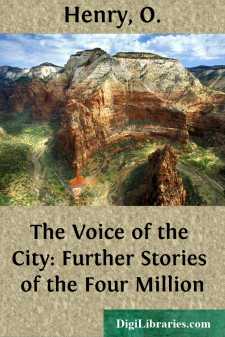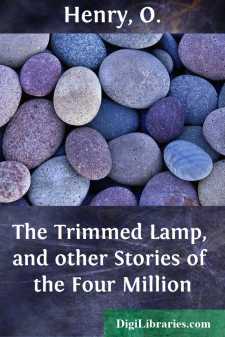Categories
- Antiques & Collectibles 13
- Architecture 36
- Art 48
- Bibles 22
- Biography & Autobiography 813
- Body, Mind & Spirit 142
- Business & Economics 28
- Children's Books 16
- Children's Fiction 13
- Computers 4
- Cooking 94
- Crafts & Hobbies 4
- Drama 346
- Education 46
- Family & Relationships 57
- Fiction 11829
- Games 19
- Gardening 17
- Health & Fitness 34
- History 1377
- House & Home 1
- Humor 147
- Juvenile Fiction 1873
- Juvenile Nonfiction 202
- Language Arts & Disciplines 88
- Law 16
- Literary Collections 686
- Literary Criticism 179
- Mathematics 13
- Medical 41
- Music 40
- Nature 179
- Non-Classifiable 1768
- Performing Arts 7
- Periodicals 1453
- Philosophy 64
- Photography 2
- Poetry 896
- Political Science 203
- Psychology 42
- Reference 154
- Religion 513
- Science 126
- Self-Help 84
- Social Science 81
- Sports & Recreation 34
- Study Aids 3
- Technology & Engineering 59
- Transportation 23
- Travel 463
- True Crime 29
The Voice of the City: Further Stories of the Four Million
by: O. Henry
Categories:
Description:
Excerpt
I
Twenty-five years ago the school children used to chant their lessons. The manner of their delivery was a singsong recitative between the utterance of an Episcopal minister and the drone of a tired sawmill. I mean no disrespect. We must have lumber and sawdust.
I remember one beautiful and instructive little lyric that emanated from the physiology class. The most striking line of it was this:
"The shin-bone is the long-est bone in the hu-man bod-y."
What an inestimable boon it would have been if all the corporeal and spiritual facts pertaining to man had thus been tunefully and logically inculcated in our youthful minds! But what we gained in anatomy, music and philosophy was meagre.
The other day I became confused. I needed a ray of light. I turned back to those school days for aid. But in all the nasal harmonies we whined forth from those hard benches I could not recall one that treated of the voice of agglomerated mankind.
In other words, of the composite vocal message of massed humanity.
In other words, of the Voice of a Big City.
Now, the individual voice is not lacking. We can understand the song of the poet, the ripple of the brook, the meaning of the man who wants $5 until next Monday, the inscriptions on the tombs of the Pharaohs, the language of flowers, the "step lively" of the conductor, and the prelude of the milk cans at 4 a. m. Certain large-eared ones even assert that they are wise to the vibrations of the tympanum produced by concussion of the air emanating from Mr. H. James. But who can comprehend the meaning of the voice of the city?
I went out for to see.
First, I asked Aurelia. She wore white Swiss and a hat with flowers on it, and ribbons and ends of things fluttered here and there.
"Tell me," I said, stammeringly, for I have no voice of my own, "what does this big—er—enormous—er—whopping city say? It must have a voice of some kind. Does it ever speak to you? How do you interpret its meaning? It is a tremendous mass, but it must have a key."
"Like a Saratoga trunk?" asked Aurelia.
"No," said I. "Please do not refer to the lid. I have a fancy that every city has a voice. Each one has something to say to the one who can hear it. What does the big one say to you?"
"All cities," said Aurelia, judicially, "say the same thing. When they get through saying it there is an echo from Philadelphia. So, they are unanimous."
"Here are 4,000,000 people," said I, scholastically, "compressed upon an island, which is mostly lamb surrounded by Wall Street water. The conjunction of so many units into so small a space must result in an identity—or, or rather a homogeneity that finds its oral expression through a common channel. It is, as you might say, a consensus of translation, concentrating in a crystallized, general idea which reveals itself in what may be termed the Voice of the City. Can you tell me what it is?"
Aurelia smiled wonderfully. She sat on the high stoop. A spray of insolent ivy bobbed against her right ear....












